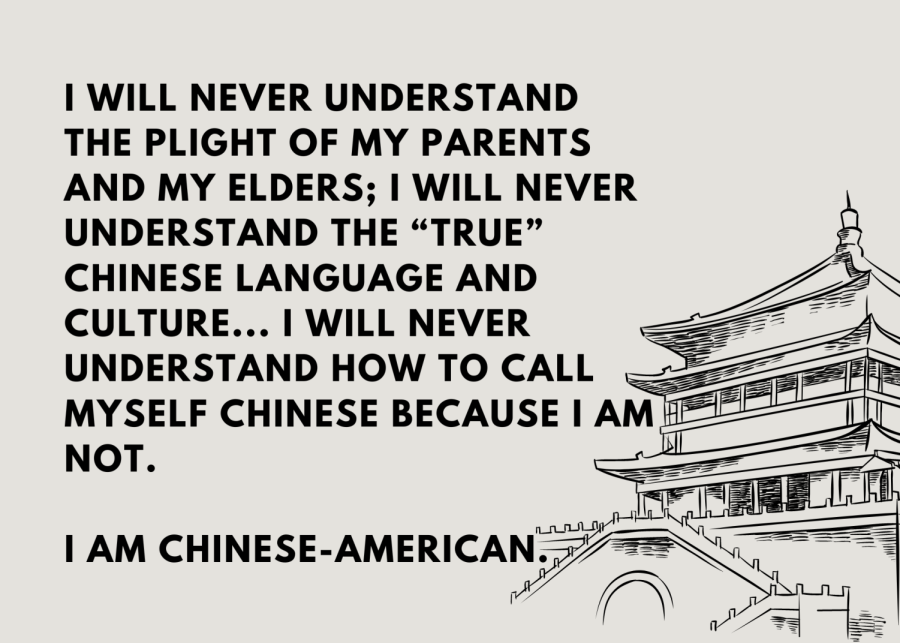I can’t call myself Chinese
May 23, 2023
“I Can’t Call Myself Chinese”
There’s a saying, 孝,one of the most important sayings among my culture. 百善孝为先 (Bǎi shànxiào wèi xiān): filial piety first.
Standing in the middle of a birthday party for my cousin, I remember all my relatives gathering around the birthday boy. Red envelopes would flood his hands, every single kid playing or messing around in the middle of a busy Chinese restaurant. It was time to gather around for pictures. Everybody gathered around, kids in the front row, parents in the back. Everyone except me.
Minutes beforehand, my grandparents had told me to get more food. I was as “skinny as a stick,” they said, and young me told them I didn’t want any more. Defying your grandparents was like defying your parents — the wrath is the same. How could I reject the food they worked hard to give me? To reject what they could not have when they were my age, living in poverty in rural villages in China? But I did. The argument that unfolded turned everyone against me, disappointed in the fact that I defied my parents. I did not enter the family photo that day.
“The time your grandparents lived in was a time of turmoil” my parents would tell me. “We didn’t have as much as you have; we spoiled you with everything” they would say. We would gather bowls of rice and start eating, everyone picking pieces of food up with their chopsticks. Then there was me, who stabbed his food with a fork and scooped his rice with a spoon.
I grew up foreign, going to school with white kids who would ask whether I “enjoyed eating dogs or smoked opium,” or whether I loved eating raw fish because “Chinese is the same thing as Japanese.” I was told by my sixth grade teacher that Chinese people and Japanese people were genetically “no different,” and chopsticks were banned from my school because they were “weapons.”
I grew up not knowing my culture. Not allowed to be near my culture because it was “foreign.”
I couldn’t call myself Chinese, because I was not “foreign.” I couldn’t call myself Chinese, because I had no idea how to talk to the elders when walking through Chinatown. I couldn’t call myself Chinese, because I couldn’t speak with my dad. He only knew Mandarin, and I spoke it poorly and broken. I couldn’t call myself Chinese, because I didn’t understand the extent of the sacrifices my parents made. I couldn’t call myself Chinese, because I wasn’t.
Years later, now in the present day, I have seen that person in my brain force myself to learn Mandarin, to learn how to speak, write, and read. I have seen that person learn filial piety and learn, through stories, the plight of his parents. I have seen that person take on a Chinese shell to cover up what he truly was inside. But that kid was still “Americanized,” mocked for his “American” accent and pale skin by friends who are more Chinese than he is.
But, putting on my headphones that day, walking home from school, the rain pouring down, I realized my goal of calling myself “Chinese” was useless. I will never understand the plight of my parents and my elders; I will never understand the “true” Chinese language and culture. I will never understand how to talk to people in Chinatown. I will never understand how to call myself Chinese because I am not.
I am Chinese-American.
